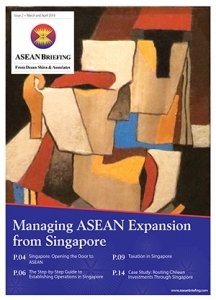China
Meat’s off the Menu: Exploring Opportunities for Meat Alternatives in China
The Chinese government has issued new dietary guidelines recommended by the country’s Health Ministry, which aim to reduce the country’s meat consumption in half by 2030. China consumes around 30 percent of the world’s meat, including half of its pork, even though average per capita meat consumption is half that of the average American or Australian. The guidelines recommend eating around 40-75 grams of meat per day, closer to recommendations made by the UK Department of Health.
Some commentators have pointed out that these guidelines have the potential to be instrumental in reducing the country’s greenhouse gas emissions. Globally, the livestock industry produces 14.5 percent of greenhouse gas emissions, totaling more than that of the global transport sector. If the guidelines are met and China’s meat consumption is reduced by 50 percent, one billion tons of carbon dioxide emissions could be cut. In addition, it would alleviate stress on land and water resources which would be significantly strained if meat consumption continues to increase at the current rate.
Inflicting Loss on Investors through Cooked Books: Assessing Accounting Fraud in China
Accounting fraud in China seldom made headlines until the U.S. Securities and Exchange Commission (SEC) recently began probing Chinese e-commerce giant Alibaba’s accounting practices. Although accounting fraud is a global issue, China’s investment climate presents higher risk because local companies often want to tank up capitals and increase marketing power from foreign entities.
As more foreign investors seek to capitalize on China’s rapidly growing middle class and the country’s energy industries, we look at common issues of accounting misconduct in China and the recent amendments released by the International Accounting Standards Board (IASB) to help investors better understand an entity’s business state before making important decisions.
Weathering China’s Cloud Computing Regulations
Last summer, Chinese tech giants Tencent and Alibaba announced investments into cloud computing services worth US$1.57 billion and US$1 billion, respectively. In 2014, cloud computing sales accounted for only five percent of China’s total IT market compared to 11 percent globally, but Bains predicts this number to swell to 20 percent by 2020, reaching US$20 billion in value and representing an annual growth rate of over 40 percent.
Despite the positive outlook for cloud computing, China’s complex and restrictive regulations governing data and internet services make entering the rapidly expanding market a complicated process.
India
Opportunities in India’s Emerging Fintech Sector
India’s financial technology (fintech) sector may be young but is growing rapidly, fueled by a large market base, an innovation-driven startup landscape, and friendly government policies and regulations. Several startups populate this emerging and dynamic sector, while both traditional banking institutions and non-banking financial companies (NBFCs) are playing catch up.
Earlier this year, the National Association of Software and Services Companies (NASSCOM) reported that around 400 fintech firms operated in India, boosted in large part by foreign investments in fintech-focused startup accelerators and incubators. NASSCOM predicts that India’s fintech software market alone could touch US$ 2.4 billion by 2020, doubling on the current rate of growth.
India Closer to Allowing Foreign Law Firms to Practice
The possibility of foreign law firms to open offices in India took a step forward this week when reports emerged that the Bar Council of India (BCI) drafted rules to allow foreign lawyers to practice in India. The new rules would allow foreign lawyers and law firms to set up offices in India to practice non-Indian law, after registering with the BCI and paying registration fees of US$ 25,000 for individual lawyers and US$ 50,000 for law firms. Practitioners would also be required to make security deposits of US$ 15,000 or US$ 40,000 for individual foreign lawyers and law firms.
Under proposed changes, foreign lawyers would be allowed to do all non-Indian law transactional legal work and could hire Indian lawyers or go into partnership with Indian lawyers. Under the proposed rules, foreign lawyers would be allowed to work for clients with foreign headquarters in international arbitrations held in India. However, foreign lawyers would not be allowed to provide any legal advice relating to courts, tribunals, boards or statutory authorities.
Vietnam
Formosa’s US$500 Million Settlement Set to Usher in New Era for Environmental Enforcement
Dead fish washed ashore. Polluted water. Fishermen losing their economic livelihood and having their well-being threatened. A Taiwanese company implicated. This is not 2016; the year is 2008, and we are looking at the Thi Vai river in southern Vietnam’s Mekong Delta, with an MSG factory upstream owned by Vedan. This was the first prominent case of environmental regulation being enforced upon a major foreign firm. Comparing Vedan’s case with Formosa’s makes the selective enforcement of regulations quite clear, and this could very well have a negative environmental fallout. Nevertheless, although an unofficial settlement was reached, saving Formosa’s operations in Vietnam for the time being, there are reasons to believe that Formosa will mark a turning point in the prosecution of cases of this caliber moving forward.
Singapore
A Guide to Trademarks in the Republic of Singapore
Singapore is ASEAN’s most developed economy and offers a wide range of investment opportunities for companies seeking to tap into the city state’s rich pool of talent and extensive global trade networks. These conditions have not been lost on foreign investors whose capital flows have propelled Singapore to become Asia’s top hub for finance and, more recently, startups.
That said, the innovative and sensitive nature of corporate branding in Singapore mandates a strong protection for intellectual property on the part of host states, and a firm understanding of trademark laws on the part of investors. This is of particular importance for small and medium sized enterprises (SMEs), which may not have the resources to engage in drawn out legal battles.
Malaysia
Malaysia Raises Minimum Wage to Enhance Automated Production
Since first implementing a minimum wage in January of 2013, the Malaysian government further increased minimum wage payments to workers as of July 1, 2016. This is part of the government’s New Economic Model, which aims to make Malaysia a high-income economy by 2020. Officials believe that the extra cost to employers will encourage a shift towards increase in productivity and investment in technology, thereby reducing reliance on labor-intensive manufacturing practices.
In addition, a rise in the minimum wage may inspire Malaysians to take jobs with increased salaries and decrease the Malaysian economy’s reliance on foreign workers. Understanding this policy will likely be of great importance for wage sensitive industries as well as companies seeking to supply consumer goods to the Malaysia market.
|
Asia Briefing Ltd. is a subsidiary of Dezan Shira & Associates. Dezan Shira is a specialist foreign direct investment practice, providing corporate establishment, business advisory, tax advisory and compliance, accounting, payroll, due diligence and financial review services to multinationals investing in China, Hong Kong, India, Vietnam, Singapore and the rest of ASEAN. For further information, please email asia@dezshira.com or visit www.dezshira.com. Stay up to date with the latest business and investment trends in Asia by subscribing to our complimentary update service featuring news, commentary and regulatory insight. |
![]()
 The Asia Sourcing Guide 2015
The Asia Sourcing Guide 2015
In this issue of Asia Briefing, we explain how and why the Asian sourcing market is changing, compare wage overheads, and look at where certain types of products are being manufactured and exported. We discuss the impact of ASEAN’s FTAs with China and India, and highlight the options available for establishing a sourcing model in three locations: Vietnam, China, and India. Finally, we examine quality control in each of these markets.
 Managing ASEAN Expansion from Singapore
Managing ASEAN Expansion from Singapore
For the second issue of our ASEAN Briefing Magazine, we look at the benefits of using Singapore a hub for the management of regional operations throughout ASEAN. We firstly focus on the position of Singapore relative to its competitors, such as the Netherlands and Hong Kong. We then provide step-by-step instructions on corporate establishment, and provide expert insight on maximizing returns through the reduction respective tax burdens.
The 2015 Asia Tax Comparator
In this issue, we compare and contrast the most relevant tax laws applicable for businesses with a presence in Asia. We analyze the different tax rates of 13 jurisdictions in the region, including India, China, Hong Kong, and the 10 member states of ASEAN. We also take a look at some of the most important compliance issues that businesses should be aware of, and conclude by discussing some of the most important tax and finance concerns companies will face when entering Asia.



